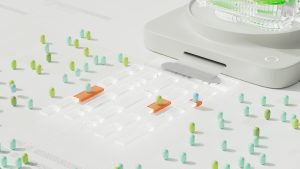Biometric Smart Locks: Security Upgrade or Privacy Risk?
The use of biometric technology, especially in the realm of home security, has been on the rise in recent years. Biometric smart locks offer a convenient and supposedly more secure way to access our homes, but as with any new technology, there are concerns about its impact on privacy. In this article, we will delve into the controversial topic of biometric smart locks and determine whether they are truly a security upgrade or a potential privacy risk.
The Basics of Biometric Smart Locks
In simple terms, biometric smart locks use a person’s unique physical characteristics, such as fingerprints, facial recognition, or iris scans, to grant access to a property. The data is collected and stored in the lock’s memory and is used to verify the identity of the user before granting them entry. These locks are often marketed as a more secure alternative to traditional locks that require physical keys or codes to unlock.
Benefits of Biometric Smart Locks
One of the main reasons why people opt for biometric smart locks is the convenience they offer. With these locks, you no longer need to worry about losing your keys or forgetting the code to your lock. You essentially become the key, and as long as you are carrying your unique feature, whether it be your fingerprint or your face, you have uninterrupted access to your home.
Another perceived benefit of biometric smart locks is enhanced security. Traditional locks can be picked, and codes can be hacked, but your physical features are nearly impossible to replicate. This adds a layer of security and makes it extremely difficult for unauthorized individuals to gain entry into your home.
Privacy Concerns Surrounding Biometric Smart Locks
While biometric smart locks offer undeniable convenience and added security, they also raise concerns about privacy. These locks collect and store your biometric data, and just like any personal information, it can potentially be compromised. If a hacker gains access to your lock’s database, they can not only unlock your door but also potentially use your biometric data for other nefarious purposes.
Another privacy concern is the potential misuse of biometric data by the companies that manufacture and operate these locks. Just as we have seen with other tech giants, there is always a risk that our personal information can be used for targeted advertising or sold to third parties without our knowledge or consent.
The Regulatory Landscape
With the increasing adoption of biometric smart locks, many countries are starting to implement regulations to ensure that the use of this technology does not infringe on people’s privacy rights. For instance, in the European Union, the General Data Protection Regulation (GDPR) requires companies to obtain explicit consent from individuals before collecting and storing their biometric data. The GDPR also gives people the right to request access to their data, have it deleted, and even request compensation in case of a data breach.
Similarly, in the United States, some states have privacy laws in place, such as the California Consumer Privacy Act (CCPA), which gives individuals more control over their personal information. It is essential to be aware of the laws and regulations in your area before investing in a biometric smart lock to ensure that your privacy rights are protected.
Conclusion
So, are biometric smart locks a security upgrade or a privacy risk? As with any technology, the answer is not black and white. These locks offer undeniable convenience and advanced security features, but they also raise valid concerns about the collection and use of personal biometric data. It is crucial to weigh the pros and cons carefully and make an informed decision about using this technology. While it may be tempting to jump on the bandwagon and embrace the latest tech trends, it is essential to prioritize our privacy and ensure that our personal data is safe and secure.











